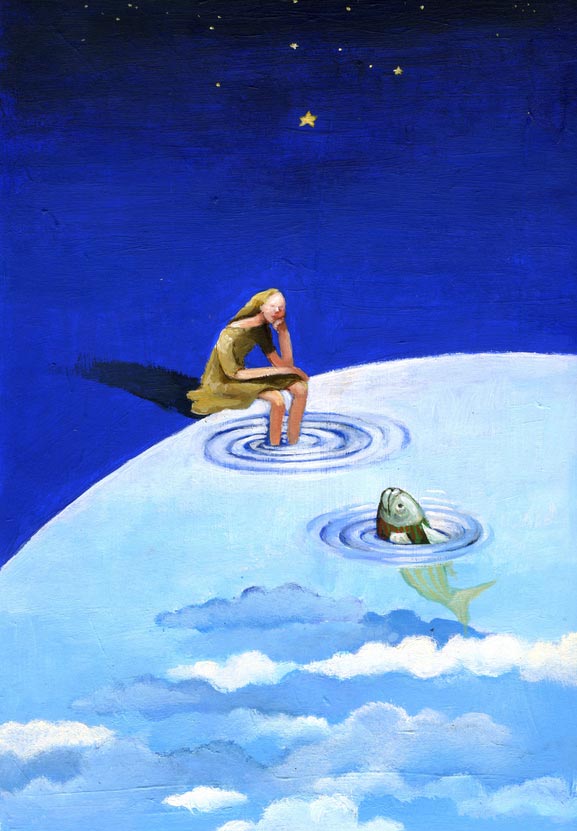 Picture this: A young guy sitting in the corner of a bedroom with his knees to his chest. He’s sweating, praying and all alone. The expression on his face is one of utter hopelessness and terror. That was me in 2001 at the height of my anxiety. Luckily, things have changed.
Picture this: A young guy sitting in the corner of a bedroom with his knees to his chest. He’s sweating, praying and all alone. The expression on his face is one of utter hopelessness and terror. That was me in 2001 at the height of my anxiety. Luckily, things have changed.
Last night I had dinner with my beautiful wife. We had some good food, we laughed, and I wasn’t at all bothered by the 100 or so people around us. I couldn’t have done this in 2001. The question is why?
What made me a nervous wreck?
I could give you some bloated reason but the truth is I don’t know what happened to me. It could have been genetics, stress, trauma, my environment or some combination of all those things. I still don’t know. I do know, however, that there was at least one thing getting in the way of my recovery. Simply put, it was my imagination. My negative dreams and fantasies stunted my recovery.
This could be happening to you too.
So many of your fantasies don’t involve you being free from anxiety and that alone can play a huge role in terms of what you think is going to happen to you. I don’t blame you though; it can be hard to picture your life without fear and worry. But for me, it was the redirection of my imagination that made all the difference. See, I used to fantasize about having heart attacks or losing my mind. I could even see myself being taken down by faceless figures with white coats.
I had created my reality from threads of distorted thoughts. That is until, randomly I admit, I started to wonder what it would be like to not be anxious. My fantasies became positive and something did change.
“There is nothing impossible to him who will try.”
Alexander the Great
I saw myself get better before it actually happened. What was only a recurring dream became reality. I stopped nibbling on every anxious thought and experience and instead looked to the future with hope. In that regard, my worry turned into positive expectation. I’m absolutely positive that you can’t dream your way out of anxiety but at the same time it can lay the groundwork for recovery.
How do you change your fantasies? The most important step is to give yourself permission to fantasize about something else. Hopefully those new visions will create the space you need to achieve what you think you can’t.





That sounds so similar to how I was some months ago. Thanking God that each day is a little better than the last, and looking forward to even more great ones to come. My current battle is just this…negative/defective thoughts of tainting my mind. I’m going to try focusing on the thought of freedom from anxiety as opposed to anticipating it 😉
Excellent post, I can’t agree more!
If we keep worrying and focusing on the negative then we invite more and more negativity.
On the other hand being grateful of what we have and focusing on the positive we invite even more positive change in our lives.
Hi Paul! This is an excellent post. I was also stuck in that ‘what if’ mode, where I would imagine all kinds of horrible things. Like you, I often worried about having a heart attack, or worse, that I was going crazy. I did go to counseling about five years ago, which helped tremendously, as I was was quite a mess after my mom lost her two-year battle with brain cancer, but it wasn’t a cure-all.
My doctor’s office is actually giving three free sessions of how to deal with stress, and one of the ideas that I thought was most helpful, was to take a scenario which freaks you out, which for me is going to the dentist. You’re supposed to write down the absolute worst-case scenario of what might happen, then an unlikely fantasy scenario, where you have the best teeth on the planet. Then you actually write down a sensible scenario of what is most likely to occur, something in between those two extremes. I find it does help with a lot of situations. It helps you to, as you said, fantasize about a situation where you aren’t overwhelmed with anxiety, and you can get through it. Of course I still haven’t been to the dentist, but I’m working on it!
Kimmie A
Good article. I need to start focusing on what it would be like to feel normal again instead of the negative, distorted thoughts that I KNOW will not happen to me. Thanks for this site!
Keep up the good work.
I am working on that. It’s hard to do, changing the way you have trained your brain to think during anxiety. It is like your brain is on constant alert mode, and for me, because I suffer from palpitations and plety of stomach problems, every PVC and stomach pain is me dying of a heart attack in my mind, and the vicious cycle begins again. But, I am exercising now, I am trying to lose a bunch of weight I have gained and I have come off of my main anti-depressant (40mg Paxil daily), but still at times fall back on my 1/2mg xanax occasionally when it gets too be too much, and I want to stop that as well at some point.
I do a lot of praying, and I have been trying to stop my thoughts when they go into a negative spin, especially when I have a palpitation. The fear of my heart being messed up feels like the driving force behind much of the anxiety now. As much as I have been told it is not life threatening, the feeling they give and the fear of it, is difficult to overcome.
I’m still working on it, but these are good words, Sir. I thank you for them.
I love this! It is so important to remember that we have the power to manifest our thoughts, whether they are positive or negative. Practicing hope is a challenge for those of us with anxiety, but it’s worth the conscious effort. Check out my blog, where I chronicle my adventures in learning to love life sans anti-anxiety meds.
Thanks for the great posts and the food for thought!
Sarah
EmbracingAnxiety.blogspot.com
Love this. Hope is powerful. Thanks for sharing. When I picture myself in ten years, it is always with anxiety. I am going to start practicing imagining myself without anxiety. Thanks for the thoughts.
Can i just say a BIG THANKYOU from the bottom of my heart Paul!! you have helped me through a lot of anxiety attacks and helped me rethink how my body reacts to it! Neverr stop impacting peoples lifes!! your a true inspiration.
Hello
I also quit my medication in januray. My anxiety returned 3 weeks after and was worst than ever. I tried to cope for a few months but I was wasting away. I lost 20 pounds, slept approximatly 3 hours a night, even with sleeping pills and had trouble with basic functioning.
So now it’s been about 2 months since I’m back on my meds. I couldn’t do it. I couldn’t quit. I feel much better now but the ordeal I put myself through is still lingering and I have a lot of phisical symptoms still. I wanted to quit for the same resons you did. But I can’t live without my antidepressant.
Lucky for me, tough, I don’t feel ”drugged” on my medication. Quite the opposite in fact. Anxiety made me feel stupid, not quite myself, worried about everything and phisically drained. Now I feel like me again. I have my personality back. I feel sharp and my mind is clear.
I’m happy you’re able to do this. I sure couldn’t. I can safely say that I’d be dead if I hadn’t started my meds again. I hate having to take them but I’m glad they allow me to be normal again. If there is such a thing.
Take care!
Another Sarah
I really like this article. It gave me some optimism. My issue with anxiety is worry about events that are negative that happen to people. Especially children. Most of these things are stories I see on the news or hear about from other people etc. it’s hard for me to ignore the thoughts because they are really happening to someone or did happen. I want to ignore them but it feels like I am ignoring their pain or acting like I don’t care while someone is suffering. How do u get past that? Probably it is the same idea of what you wrote, I just need to learn how to apply it to me.